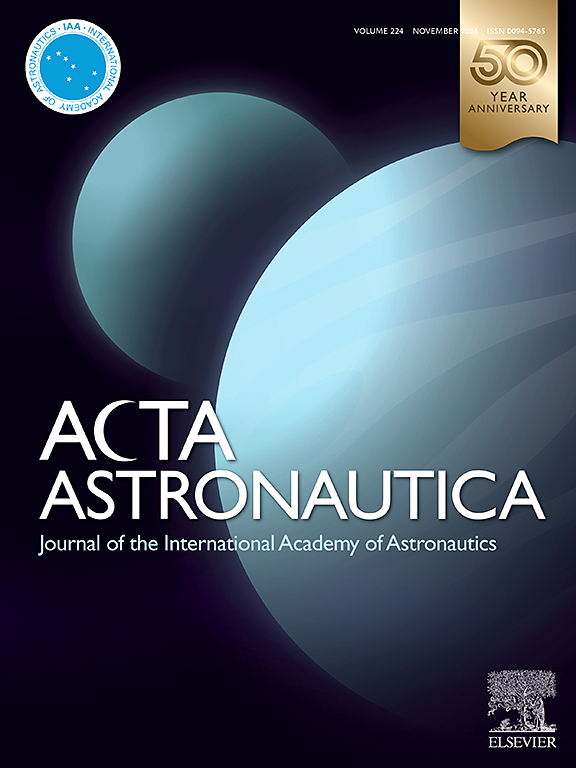Mesenchymal stem cell transplant as an intervention to ameliorate disuse-induced muscle atrophy in a mouse model of simulated microgravity
IF 3.1
2区 物理与天体物理
Q1 ENGINEERING, AEROSPACE
引用次数: 0
Abstract
Background
The hindlimb unloaded (HU) mouse model exhibits disuse-induced muscle atrophy. However, effective interventions remain elusive. We investigated the therapeutic potential of mesenchymal stem cells (MSC) transplant on muscle decline in HU mice.
Methods
We divided 4-month-old male c57BL/6j mice into controls and HU mice treated with PBS as placebo (HU-PBS) or MSCs (HU-MSC; one million cells/100 μl PBS into gastrocnemius muscles once a week) for three weeks. We measured muscle mass, grip strength, and an unbiased transcriptome analysis of gastrocnemius muscles.
Results
MSC treatment prevented muscle atrophy and improved grip strength in HU mice. Transcriptome analysis revealed MSC-induced unique (557 genes) and differential (1214 genes) expressions of several genes compared to the HU-PBS group. GO and KEGG term analysis revealed an HU-induced downregulation of pathways associated with the regulation of contractile apparatus, neuromuscular junction, and satellite cell function, which were partly reversed with MSC treatment. Lastly, MSC treatment also upregulated the pathways controlling muscle differentiation and growth in the HU mice.
Conclusion
Altogether, we report the therapeutic potential of MSCs in treating disuse-induced muscle atrophy and weakness. Our study may help unravel novel molecular mechanisms involved in MSCs-induced muscle restoration.
间充质干细胞移植作为一种干预措施,可改善小鼠模拟微重力模型中由废用引起的肌肉萎缩
背景后肢无负荷(HU)小鼠模型表现出失用引起的肌肉萎缩。然而,有效的干预措施仍然难以捉摸。我们将4个月大的雄性c57BL/6j小鼠分为对照组和用PBS作为安慰剂(HU-PBS)或间充质干细胞(HU-MSC;100万个细胞/100微升PBS注入腓肠肌,每周一次)治疗的HU小鼠,为期三周。我们测量了肌肉质量、握力,并对腓肠肌进行了无偏见的转录组分析。转录组分析显示,与HU-PBS组相比,间充质干细胞诱导了多个基因的独特表达(557个基因)和差异表达(1214个基因)。GO和KEGG术语分析显示,HU诱导的与调节收缩器、神经肌肉接头和卫星细胞功能相关的通路下调,而间叶干细胞治疗可部分逆转这些下调。最后,间充质干细胞治疗还上调了控制HU小鼠肌肉分化和生长的通路。我们的研究可能有助于揭示间充质干细胞诱导肌肉恢复的新分子机制。
本文章由计算机程序翻译,如有差异,请以英文原文为准。
求助全文
约1分钟内获得全文
求助全文
来源期刊

Acta Astronautica
工程技术-工程:宇航
CiteScore
7.20
自引率
22.90%
发文量
599
审稿时长
53 days
期刊介绍:
Acta Astronautica is sponsored by the International Academy of Astronautics. Content is based on original contributions in all fields of basic, engineering, life and social space sciences and of space technology related to:
The peaceful scientific exploration of space,
Its exploitation for human welfare and progress,
Conception, design, development and operation of space-borne and Earth-based systems,
In addition to regular issues, the journal publishes selected proceedings of the annual International Astronautical Congress (IAC), transactions of the IAA and special issues on topics of current interest, such as microgravity, space station technology, geostationary orbits, and space economics. Other subject areas include satellite technology, space transportation and communications, space energy, power and propulsion, astrodynamics, extraterrestrial intelligence and Earth observations.
 求助内容:
求助内容: 应助结果提醒方式:
应助结果提醒方式:


